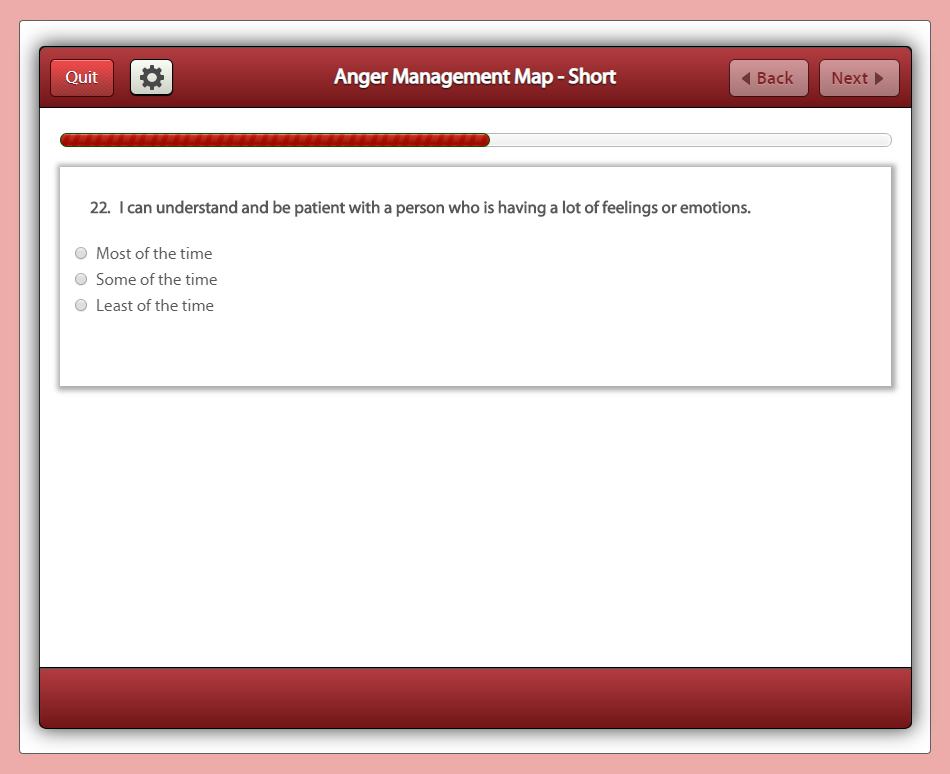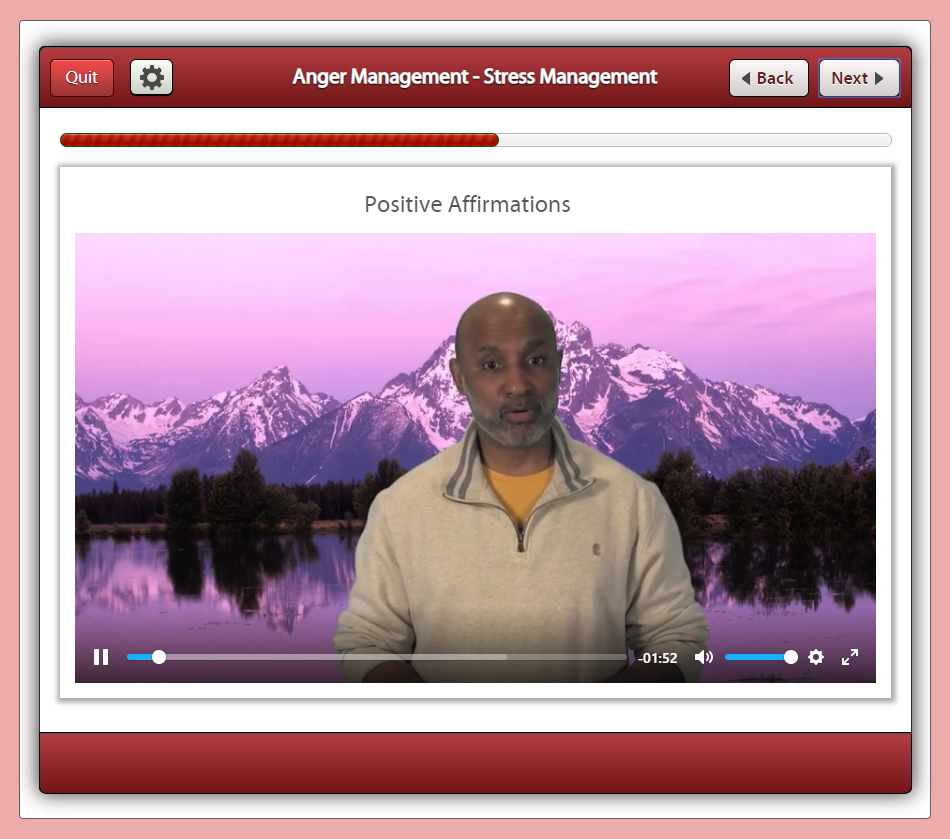The Anger Management Program™
Research-based, assessment and skill building system that teaches a positive alternative to anger by developing a healthy personality.
The Anger Management Program™
Research-based, assessment and skill building system that teaches a positive alternative to anger by developing a healthy personality.
Road rage, murder, rape, and child abuse are just a few of the many tragedies our society suffers as a result of violence. Violent behavior is often the result of stressful events that trigger the inability to control an overwhelming sense of anger. The Anger Management Program teaches a positive alternative to violence, and in turn helps to develop a healthy personality.
Research and Credibility
At the core of The Anger Management Program is an evidence-based assessment called The Anger Management Map, which is built of our Personal Skills Map. With 174 Master and Doctoral-level dissertations, research papers, books and articles, a norm base of 35,000+ participants and over 9 million administrations, nothing else comes close in terms of credibility and validity.
The Anger Management Map®
The Anger Management Map is the core assessment in this program. The map looks at empathy, the ability to put oneself in someone else’s shoes. Assertion, the skill that helps people communicate effectively, honestly and appropriately is ranked, along with the opposite traits of aggression (anger) and deference (fear).
Since stress is usually the trigger for anger, stress management is assessed. The map also emphasizes the importance of change orientation, which is the degree to which people are motivated for change. This scale is a reliable predictor of the potential for success through training.
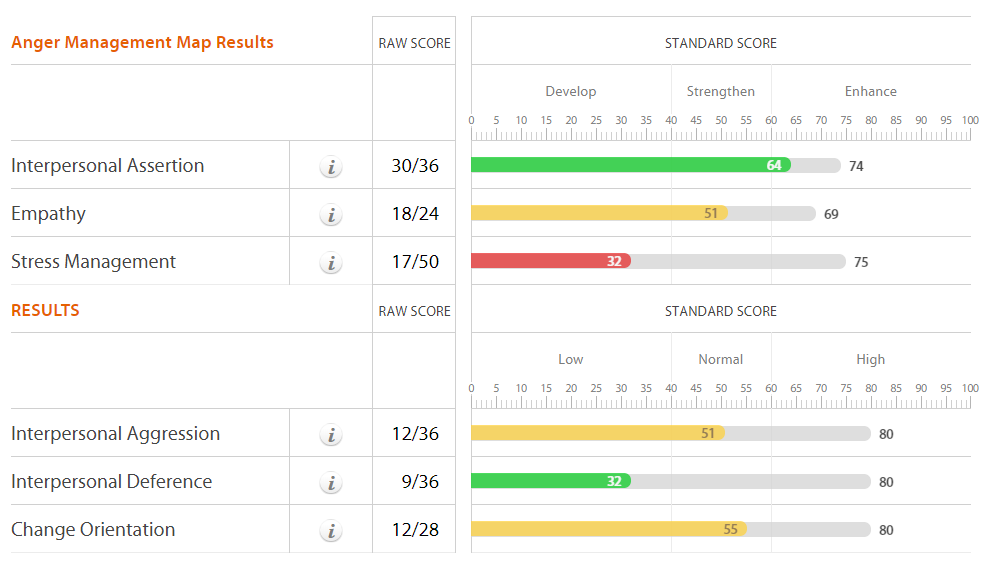
Skill Enhancement Components
The entire Skill Intervention system consists of over 6 hours of self-directed, interactive, on-line, learning activities and post assessments. There are also several off-line individual and group activities. Each skill intervention contains approximately twenty-five short videos introducing key concepts with five hours of online instruction, and individual and group activities. Our instructor-led version can be used for more intense intervention.
The skill interventions include:
Interpersonal Assertion – teaches how to effectively use direct, honest, and appropriate expression of thoughts, feelings and behaviors in dealings with others. It also covers how to be direct and honest in communicating with others without violating the rights of the other person.
Empathy – covers how to sense, understand, and accept another person’s thoughts, feelings and behaviors. Empathy is a primary characteristic of a skilled communicator. Persons with strong empathy tend to be sociable and outgoing.
Stress Management – teaches how to manage stress and anxiety. Persons with skills in managing stress positively are competent managers of time and are flexible, self-assured, stable and self-reliant.
The Management System
All assessments and instruction are electronically integrated into our management system, eliminating the expensive and time-consuming activities of assigning, scoring and reporting results, and freeing up the program administrator to help where needed. Program accountability is electronically built into the system.
While doing all this, the management system is tracking , scoring, benchmarking, storing and printing information on each user in the system.
You Can’t Discipline Your Way Out of the Problem
Recently the U.S. Department of Education sent guidance from the director of the Office of Special Education Programs, Ruth Ryder, to all public schools stating that schools are required to provide positive behavioral supports to students with disabilities. One major reason these supports are needed is because these students frequently possess behavioral issues related to anger.
The Problem
According to a recent Harvard Medical School report, “Uncontrollable Anger Prevalent Among Youth”, nearly two-thirds of US adolescents have experienced an anger attack that involved threatening violence, destroying property, or engaging in violence towards others at some point in their lives. Their research finds that severe attacks of uncontrollable anger are much more common among adolescents than previously recognized, especially students with disabilities.
Identifying Individual Needs in the Anger Management Process
One of the best ways to identify individual personal needs in the anger management process is to use an evidence-based assessment. Not just any assessment, but one that focuses on developing a healthy personality outside of anger and violence. The Anger Management Map™ is such an assessment. The focus of the assessment is on the social/emotional needs involved in the anger management process. The scales in the assessment correlate to positive intervention and the supports needed to help overcome anger and violence. Our Anger Management Program provides an evidence-based assessment that is connected to a skill intervention system providing positive behavioral supports targeting the management of one’s anger.
We have helped over 13,000 organizations to help millions of people maximize their personal and professional success with our easy-to-use online assessment and skill building tools in Conover Online.
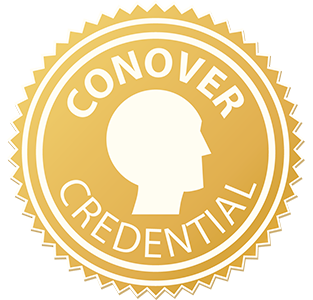
Utilize our unique credentialing system to recognize your participants success in our programs.
